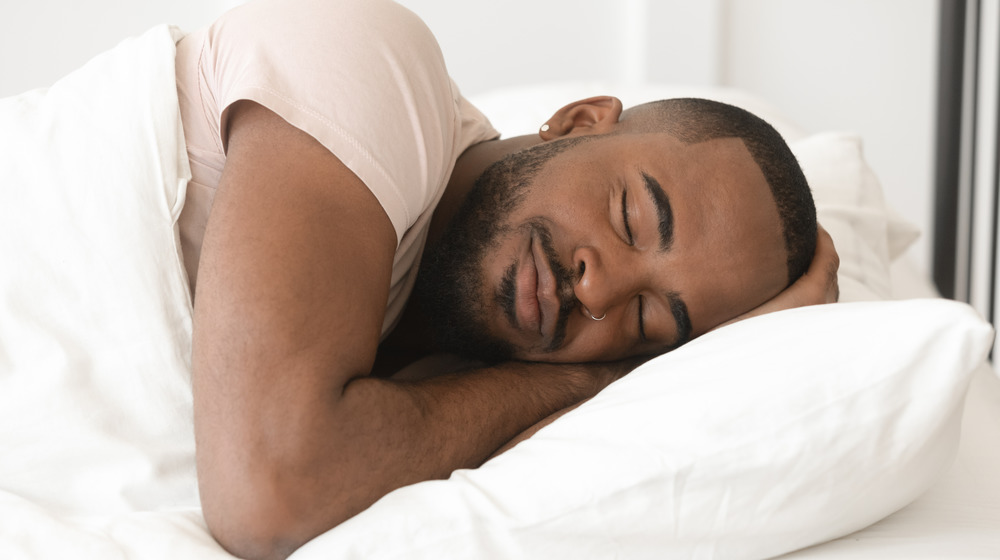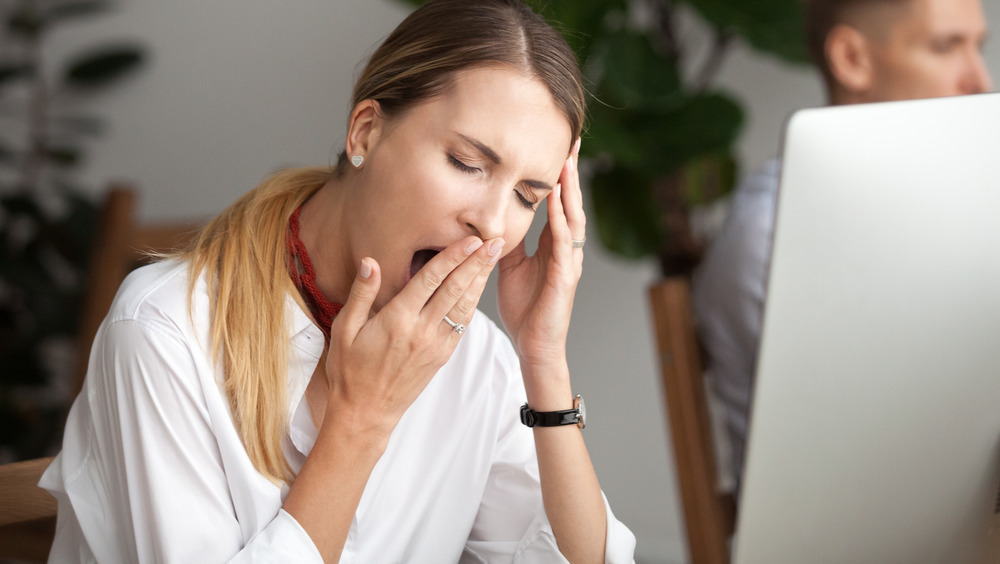You're Taking Too Much Melatonin If This Happens To You
The COVID-19 pandemic has wreaked havoc on so many people's sleep habits. Stress, anxiety, and long days spent working from home have affected the amount and quality of sleep for so many (via the Cleveland Clinic). People that have never had problems with sleep are searching for ways to drift off more easily, and are reaching for an increasingly popular over-the-counter supplement called melatonin.
Our bodies naturally make the hormone melatonin to help us get ready to drift off into dreamland every night (via Healthline). When it gets dark, the levels of melatonin in your blood rise, cueing your body to start winding down. By the morning, melatonin levels drop back down. Body temperature and blood pressure are also influenced by melatonin. It even plays a part in how your immune system reacts to threats. So if we've already got this helpful hormone doing its job in our bodies, is it really safe to take more of it?
More is not always better
Some research has shown that taking melatonin can help people with sleep disorders fall asleep more easily. But the improvements have been small, with the average time it took subjects to fall asleep only decreasing by seven minutes (via the University of Michigan). Melatonin supplements are generally considered safe to take for short periods of time and are not addictive, but they do have a few possible side effects to watch out for. If you notice that you're extremely tired the next day or are experiencing nausea, headache, anxiety, dizziness, or extremely low blood pressure, you may be taking too much (via the Mayo Clinic).
So what's considered a safe dose of melatonin? Scientists don't have a definite answer, but in general, doctors recommend you start with a very small dose and gradually increase it if you need to. Taking 0.5 mg or less will mimic the amount that your brain naturally produces. Researchers are unsure of how much melatonin is considered unsafe, since it has very low toxicity.
While melatonin supplements may be a relatively safe and accessible way to help improve sleep, there are other ways to help increase the amount of melatonin your body makes. By decreasing stress levels, limiting the amount of bright light you're exposed to leading up to bedtime, and getting plenty of natural light throughout the day, you may be able to help improve your sleep-wake cycle without a pill.


